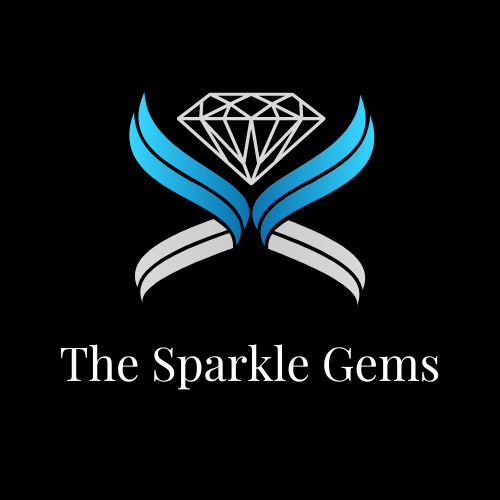Vous n'avez pas enchéri sur cette enchère.
6.25 Carat Bi-Colour Ametrine Gemstone
- UGS
- Dimensions (mm)
- 10.560 x 9.830 x 7.370mm
- Poids (cts)
- 6.250
- Treatment
- Heat Treatment
- Shape
- Asscher
- Taper
- Faceted
- Clarity
- N/A
- Couleurs
-
Ametrine is a unique gemstone. The stone comes from two types of quartz being mixed together: amethyst and citrine. As you may have guessed, the name is actually a combination of the two stones that ametrine derives from.
The color of ametrine is a mixture of yellow citrine and purple amethyst blends. Other names for the ametrine gemstone include trystine or bolivianite. The latter name comes from the fact that just about all ametrine mined today is unearthed in Bolivia
Ametrine is a unique gemstone. The stone comes from two types of quartz being mixed together: amethyst and citrine. As you may have guessed, the name is actually a combination of the two stones that ametrine derives from.
The color of ametrine is a mixture of yellow citrine and purple amethyst blends. Other names for the ametrine gemstone include trystine or bolivianite. The latter name comes from the fact that just about all ametrine mined today is unearthed in Bolivia.
If you’re interested in the technical specifications of ametrine, then they are as follows:
Mohs Hardness: 7
Color: Color-zoned; Amethyst zones - purple to violet; Citrine zones - yellow to orange; Some stones may appear mauve, peach, rosy-gold, or champagne
Crystal structure: Trigonal
Luster: Vitreous (glassy)
Transparency: Translucent to transparent
Refractive index: 1.54-1.55
Density: 2.65
Cleavage: None
Fracture: Conchoidal
Streak: White
Luminescence: Sometimes weak fluorescence - blue or green in LW-UV & SW-UV
Pleochroism: Sometimes in zones; Amethyst zones - sometimes weak or moderate purple to reddish-purple; Citrine zones - sometimes weak yellow to orange
Birefringence: 0.009
Dispersion: 0.013
Optical effects: Potential "optical dishes" (visible light passing through in many directions, making different uniaxial optic figures visible) if concave dishes are cut into its surface
- UGS
- Dimensions (mm)
- 10.560 x 9.830 x 7.370 mm
- Poids (cts)
- 6.250
- Treatment
- Heat Treatment
- Shape
- Asscher
- Taper
- Faceted
- Clarity
- N/A
- Couleurs
-
Ametrine is a unique gemstone. The stone comes from two types of quartz being mixed together: amethyst and citrine. As you may have guessed, the name is actually a combination of the two stones that ametrine derives from.
The color of ametrine is a mixture of yellow citrine and purple amethyst blends. Other names for the ametrine gemstone include trystine or bolivianite. The latter name comes from the fact that just about all ametrine mined today is unearthed in Bolivia
Ametrine is a unique gemstone. The stone comes from two types of quartz being mixed together: amethyst and citrine. As you may have guessed, the name is actually a combination of the two stones that ametrine derives from.
The color of ametrine is a mixture of yellow citrine and purple amethyst blends. Other names for the ametrine gemstone include trystine or bolivianite. The latter name comes from the fact that just about all ametrine mined today is unearthed in Bolivia.
If you’re interested in the technical specifications of ametrine, then they are as follows:
Mohs Hardness: 7
Color: Color-zoned; Amethyst zones - purple to violet; Citrine zones - yellow to orange; Some stones may appear mauve, peach, rosy-gold, or champagne
Crystal structure: Trigonal
Luster: Vitreous (glassy)
Transparency: Translucent to transparent
Refractive index: 1.54-1.55
Density: 2.65
Cleavage: None
Fracture: Conchoidal
Streak: White
Luminescence: Sometimes weak fluorescence - blue or green in LW-UV & SW-UV
Pleochroism: Sometimes in zones; Amethyst zones - sometimes weak or moderate purple to reddish-purple; Citrine zones - sometimes weak yellow to orange
Birefringence: 0.009
Dispersion: 0.013
Optical effects: Potential "optical dishes" (visible light passing through in many directions, making different uniaxial optic figures visible) if concave dishes are cut into its surface
| Fournisseur d'expédition | Expédition vers :pays | Expédition dans le reste du monde |
|---|---|---|
| Standard Shipping - Tracked | $9.00 / : jours jours | $9.00 / : jours jours |
| FedEx | $25.00 / : jours jours | $25.00 / : jours jours |
|
:pays
:fournisseur bénéficie d'une réduction de :prix sur les commandes avec :quantité ou plus d'articles
Reste du monde
:fournisseur bénéficie d'une réduction de :prix sur les commandes avec :quantité ou plus d'articles
|
||
| Registered Shipping | $19.99 / : jours jours | $19.98 / : jours jours |
|
:pays
:fournisseur bénéficie d'une réduction de :prix sur les commandes avec :quantité ou plus d'articles
Reste du monde
:fournisseur bénéficie d'une réduction de :prix sur les commandes avec :quantité ou plus d'articles
|
||

-
 Positif
PositifLovely color and fast shipping!
-
 Positif
PositifIntense color and good shipping.
Pourquoi les utilisateurs se surenchérissent-ils ?
Lorsqu'une enchère est placée, il s'agit du montant maximum qu'un utilisateur est prêt à enchérir pour le produit. Notre système enchérira ensuite automatiquement au nom de cet utilisateur, augmentant progressivement l'enchère pour maintenir sa position d'enchérisseur le plus élevé, jusqu'au maximum spécifié.
Lorsqu'il y a une icône indiquant "Enchère automatique", cela signifie que notre système place activement des enchères pour l'utilisateur en fonction de son enchère maximale. Cela peut donner l'impression que les utilisateurs surenchérissent eux-mêmes, mais c'est simplement le résultat de la mise à jour de l'enchère par le système pour refléter la limite maximale des utilisateurs.
















